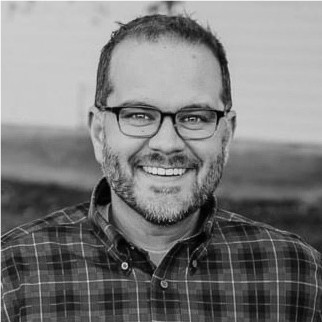Grant Using Two Trevecca Degrees to Impact First-Generation Students
| Alumni
 Troy Grant grew up in the Georgia district of the Church of the Nazarene and heard about Trevecca on multiple occasions. But when the time came to choose a college, he had other ideas in mind.
Troy Grant grew up in the Georgia district of the Church of the Nazarene and heard about Trevecca on multiple occasions. But when the time came to choose a college, he had other ideas in mind.
“I was going to go to a university in Georgia and I had paid my deposit,” Grant said. “But I just felt this tug at my heart to enroll at Trevecca. I remember coming for another visit and there was this overwhelming sense that I was where I needed to be.”
Grant graduated with a bachelor’s in business administration with an emphasis in music business. It was a time of growth, and through it he discovered who he was as a leader while being stretched academically and spiritually. Grant and his wife Christy, who he met at Trevecca, were both the first in their families to attend college.
“There was a lot that we were experiencing that our families had never experienced before and Trevecca was a really safe, wonderful place to help usher us through that process,” Grant said.
After graduation, he became an admissions counselor on the Hill and then left to work in business sales. After spending time in the corporate world, he knew an MBA would be beneficial for his future as he searched for a career he was passionate about.
“I got a job that can only be described as soul sucking. I knew I did not want to do this work,” Grant said. “I thought a master’s degree was going to be advantageous and allow me to do something where I was giving back in a meaningful way. I felt like it could open a lot of doors.”
Grant began the program in 2006, and in addition to supportive faculty and important curriculum, he was struck with the relationships he built and the foundation of faith that was present through his whole education.
“I loved the cohort model. We really bonded and encouraged each other,” Grant said. “That level of camaraderie was really powerful. The Christ-centered aspect was also very much present in my undergraduate and graduate work and that made a difference.”
The importance of a supportive environment became especially relevant when he was diagnosed with testicular cancer while seeking to finish his degree.
“As a 26-year-old guy, that was the first time in my life that I felt like I wasn’t invincible. The faculty and the cohort were so understanding and flexible and allowed me to do what I needed to do to stay healthy but still complete the program,” Grant said. “I won the division award and I would like to think it was because I contributed something, but I also think it was reflective of how the program poured into me during a very difficult time for me and my family.”
In 2008, the year of his graduation, Grant began a career at the Tennessee Higher Education Commission, working in a division that focuses on increasing the number of Tennessee students who enroll and succeed in education or training after graduation. In a workplace full of people with policy degrees, he stood out with his business experience.
“What I brought to the table was business management expertise that allowed me to manage multi million dollar grants and think about how we could leverage business concepts around marketing and make system changes to better equip the communities we were serving,” Grant said. “I do feel like I was able to put to use the marketing and the business law classes, and the things I learned in my masters and undergrad programs differentiated me from some of my colleagues in the policy environment.”
After 15 years at the Tennessee Higher Education Commission, Grant secured a job as the chief scholars officer at the Ayers Foundation, which embeds college access counselors in lower-income, rural high schools across the state to improve the number of students who go to college or receive some kind of training after high school. They work to ensure that they have what they need to earn a living wage and have a lifelong career.
For Grant, a first generation student himself, this mission hits close to home and propels him to keep working hard to see students set goals and realize their dreams.
“I have two children and their lives are fundamentally different because of the choice their mom and dad made to go to college,” Grant said. “Getting a degree changes the family tree and the ability to provide that opportunity to other students is what drives me.”
He acknowledges that the work is bigger than individual students. It is about transforming towns and cities across the state. It is a mission that he has been forming throughout his life.
“This work fundamentally changes communities. When a community fosters a culture where it is normal for students to further themselves after high school, it changes the economic landscape of that community,” said Grant. “It is important to me that the work I do is done with excellence, authenticity and a sense of purpose. Those values were instilled by my family and reinforced by Trevecca.”
